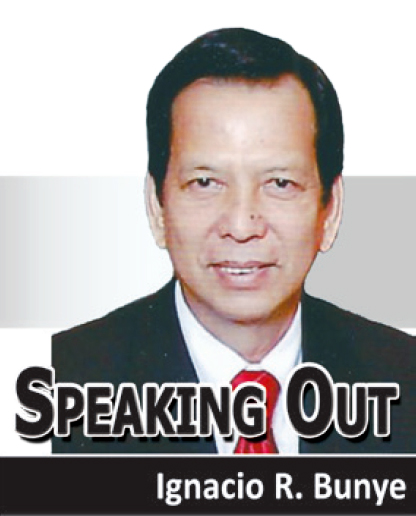 UNDER the People’s Small Scale Mining Act of 1991, the Bangko Sentral ng Pilipinas (BSP) is supposed to buy the gold produce of small miners. The purchased gold is then refined into world quality gold bars at the BSP’s Security Plant Complex in Quezon City. The gold bars are then sold in the world market but some are physically kept in the BSP’s vault.
UNDER the People’s Small Scale Mining Act of 1991, the Bangko Sentral ng Pilipinas (BSP) is supposed to buy the gold produce of small miners. The purchased gold is then refined into world quality gold bars at the BSP’s Security Plant Complex in Quezon City. The gold bars are then sold in the world market but some are physically kept in the BSP’s vault.
For a long while, everything went well. Everybody was happy. The small miners just walked in any of the gold buying stations nationwide of the BSP – in Quezon City, Baguio, Davao, Zamboanga and Naga – and were promptly paid. The BSP kept growing its gold reserves.
Then BIR Commissioner Kim Henares stepped in sometime in 2011. Henares insisted on automatically withholding five percent on sales of gold to the BSP. No ifs and buts about it. That’s the law, Henares insisted.
She was actually correct but unfortunately, Henares failed to anticipate the consequences of her decision.
In the end, Henares was able to collect a whooping five per cent of nothing!
Worse, the small miners got scared, stayed away from BSP and sold their gold in the black market.
According to BSP Deputy Governor Diwa Guinigundo, the purchase of gold by the BSP plummeted and the production of gold bars practically went pffft.
From 2005 to 2011, the BSP bought an average of 900 thousand troy ounces of gold which produced 2,500 gold bars a year. This plunged to only 35 thousand troy ounces, yielding 79 bars the year Henares stepped in.
On Henares’ last year as BIR Commissioner, sales to the BSP further declined to 14 thousand troy ounces or the finished equivalent of only 25 gold bars.
BSP averted a layoff of employees who were engaged in gold refining by retooling and re-assigning them elsewhere in BSP’s Security Plant Complex.
But the major collateral fallout, explained Guinigundo, was the reduction of BSP’s ability to build up its foreign exchange reserves.
The steep drop in gold bullion production was immediately noticed by Finance Secretary Carlos Dominguez III when he joined the Bangko Sentral Monetary Board as government representative in 2016.
From where he sat, Dominguez saw the bigger picture and immediately took the pragmatic preliminary step to reverse the alarming situation.
Dominguez reduced the withholding tax rate on the sale of gold to the BSP via a revenue regulation and then worked with Congress to amend the National Internal Revenue Code.
The result was the filing in Congress of House Bill 3297 (co-authored by Evalina Escudero, Ronald Cosalan, Speaker Gloria Arroyo, Joseph Paduano, Elisa Kho, former Speaker Pantaleon Alvarez, Rudy Fariñas and Dakila Cua) and the equivalent measure in the Senate.
Last week, Malacañan announced that President Duterte has signed into law Republic Act 11256. The law removes the five percent withholding tax and the two percent excise tax on the sale of gold to the Bangko Sentral.
If everything works out as envisioned, the small miners are expected to troop back to the BSP, instead of the black market where they are frequently short-changed.
The move is also expected to allow the BSP to grow its international reserve without spending dollars since the purchase of gold from the small miners will be paid for with pesos.
The amendment is really a “win-win”, according to newly re-elected senator Sonny Angara, who sponsored the “gold bill” in the senate.
***
Note: You may email us at totingbunye2000@gmail.com. Please feel free to share this via Facebook and/or Twitter./PN





